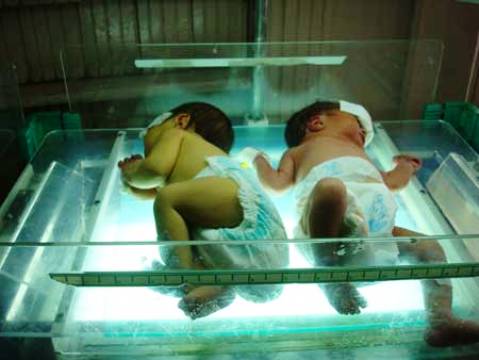 The abnormally high number of deaths at Kashmir’s only pediatric hospital during the last few months points to the deeper malaise and years of mismanagement. A KASHMIR LIFE report
The abnormally high number of deaths at Kashmir’s only pediatric hospital during the last few months points to the deeper malaise and years of mismanagement. A KASHMIR LIFE report
Chief Minister Omar Abdullah expects a visible change in Kashmir’s lone pediatric G B Pant hospital within 10 days. But it is shocking for many people that the government wakes up only after a tragedy leads to a crisis in the making. It took more than 360 baby deaths in the hospital in 138 days to get the government to work. The health ministry might not have acted had the chief minister’s office not smacked of a crisis in the ‘routine reaction’.
“It is bizarre,” a senior pediatrician who earlier served the hospital but refused to be identified said. “There is a lot of mismanagement and people have been crying over it for years but nobody listened.” Another doctor Altaf Hussain termed the report as “extraordinary and scandalous”. This, he was quoted saying, does not even happen in sub Saharan Africa.
Lawmaker Engineer Rashid who represents north Kashmir’s Langate constituency in the state legislature led a symbolic protest against the deaths in front of the hospital. “Where is the basic infrastructure?” shouted Rashid. “This hospital that takes care of the entire Kashmir has only three ventilators.” He wanted CBI to look into the fresh spate of baby deaths.
PDP president Ms Mehbooba Mufti wanted the Prime Minister to intervene. “Government of India (GoI) and Congress leadership as coalition partners owed it to the State to ensure at least bare minimum health facilities and find out how huge funds in this sector are actually spent,” Ms Mufti said. “I am sure such tragedies elsewhere would have evoked an entirely different response.”
J&K government spends substantially on the health sector. It is gradually surging. The overall allocations for health were at Rs 607 crore in 2007-08, Rs 907 crore in 2008-09 which increased to Rs 1080 crore in 2009-10. Against Rs 1674.94 crore in 2011-12, the bill to run the health sector and medical education has shot up to Rs 1787.14 crore for the current fiscal.
But the surge in public expenditure is mostly going to fund the wages and salaries of thousands of doctors, paramedics and other waged workers in the sector whose number was 35209 at the end of March 2011. It excludes hundreds of doctors who work on consolidated packages on the new ad hoc mechanism that is now the new governing norm in J&K. The GB Pant hospital that is in the news requires Rs 13 crore for the current fiscal of which more than nine crore rupee would go as salaries and four crore for drugs, equipment and upkeep of the building that houses the hospital on a busy road.
For the first time the politicians skipped to face the media. It was newly appointed Health Secretary Manoj Diwedi presiding over the official response team along with SKIMS director and GMC principal. They announced the “preventive and punitive actions” on the baby-death case including the “attachment” of the services of GMC Pediatrics head Javed Choudhary.
“Even a single death is too many,” an apparently emotional Diwedi said as officials from the CMs secretariat were monitoring the public mood in a meeting hall of the civil secretariat. “I am personally disappointed”.
The national average is 33 deaths per 1000 (in hospitals) but in J&K it is slightly more – 35. For the G B Pant, the calculations on basis of last five month mortality suggest it has only 28 deaths per 1000, Diwedi said. There were 68 deaths in 2315 admissions in January, 66 deaths in 2517 admissions in February, 105 deaths in 2705 admissions in March, 85 deaths in 3021 admissions in April and 44 deaths in 1510 admissions in May.
Apart from announcing adding 40 more nurses to the staff and sending a few more ventilators, Diwedi talked about the mess in the hospital. “I was shocked to know when Dr Zargar was briefing me about what is happening there,” Dwedi said.
There is nothing new in children actually dying in hospitals,” explained an insider who wishes to remain anonymous. “The issue is how the hospital was managed.”
Lack of infrastructure is one major factor. At any given point of time, a bed is usually shared by three to four children. Diwedi said the upcoming 200-bed pediatric hospital in Bemina will take care of the additional load.















